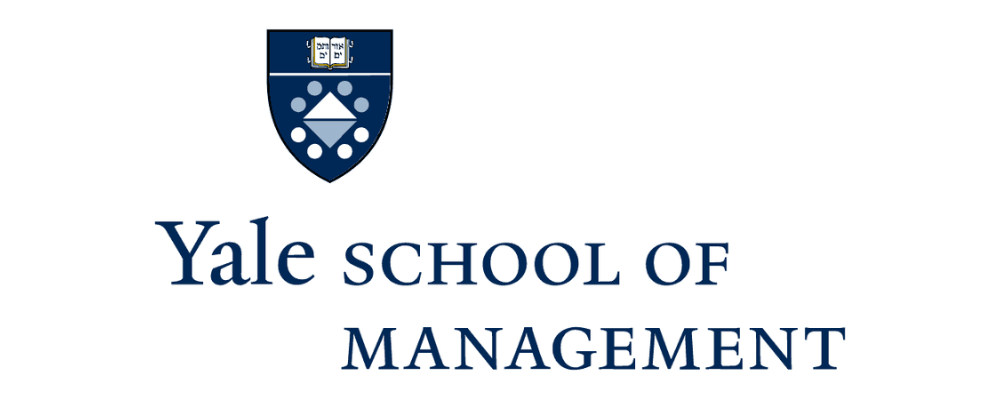
Think local and escape echo chambers
Todd Cort, Senior Lecturer in Sustainability; Faculty Director, Sustainability Program, MBA for Executives; Faculty Co-Director, Yale Center for Business and the Environment
In 2025, I anticipate that climate action will go local. Sometimes we rely on national governments too much to take on the “big challenges” like climate change. I expect that we will see another wave of local and regional efforts to “green” the economy, improve our air quality, increase green spaces, boost employment, and make our cities and communities that much more enjoyable.
It is also probably wise to recognize the echo chambers in which we work and live. Getting advice on big decisions (or even small ones) is always a good idea, but in today’s information age, we may rely too heavily on the opinions of people that have “pre-selected” to agree with us. Find independent opinions if you are serious about getting advice before a big decision.
Explore where you are
Kate Cooney, Senior Lecturer in Social Enterprise and Management; Director, Inclusive Economic Development Lab (IEDL)
The new year is a great time to explore the different neighborhoods in the city or region where you live! The recent Community Wellbeing Survey, conducted by DataHaven in Connecticut, found that there are vast differences across the state’s neighborhoods in terms of access to parks, recreational activities, bike lanes, and healthy food; at the same time, the survey revealed a surprising statewide equality in residents’ satisfaction with their lives and perception that neighbors are involved in activities to make the neighborhood a better place to live. In our recent work on a U.S. Department of Housing and Urban Development planning grant, the IEDL used DataHaven’s measures in interviews with public housing residents and found a similar pattern. Even in communities living in the most distressed conditions, we find grassroots collective efforts toward community-building and neighborhood liveability. Why not take the opportunity to visit the variety of neighborhoods in your area and attend local events? You’ll get to know your city better and make some new connections!
Trust actions, not words
Balázs Kovács, Professor of Organizational Behavior
My research on online reviews this year uncovered something unexpected: people simply cannot identify AI-written content, even when we pay them to try. As we head into 2025, this finding has changed how I think about making good decisions online. My advice is straightforward: when making important choices, look beyond what people write and focus on what they actually do. If you’re picking a restaurant, ask locals who’ve been going there for years. When evaluating potential employees or business partners, prioritize their concrete achievements and professional relationships over polished written materials. Written words (whether in reviews, testimonials, or social media) are just one piece of the puzzle. Sometimes the old methods—like asking friends and neighbors—still work best.
Don’t assume owning is better than renting
Cameron LaPoint, Assistant Professor of Finance
A common question I receive from fellow millennials and MBA students is whether they are “leaving money on the table” by continuing to rent. By many metrics, homeownership affordability has worsened since COVID. Relief does not seem to be coming anytime soon, because mortgage rates remain elevated and new housing units are slow to hit the market. My co-authored research shows that per capita building permits issued for new homes peaked in the 1970s and collapsed after 2008 across most states, only mildly rebounding in recent years.
But renting is also expensive, so shouldn’t you at least start building wealth in the form of home equity? Or could you instead put the money you would need for a down payment into the stock market and earn greater returns? Tools like Zillow’s “Rent vs. Buy” calculator are there to help you answer this question, but be sure to come armed with market research on the costs of maintaining a home, including what your property tax bill would be. Estimating these costs is not straightforward. In a newly published paper, my co-authors and I found that due to the large property tax breaks many current owners receive, you could be in for sticker shock when you get that first property tax bill after moving in. For instance, it may be that the house you purchased was being assessed at an outdated, tax-advantaged value which will now be reset upward given the new sale. And, unfortunately, home repairs and improvements may be something you’ll need to budget for given increasing natural disaster risks.
Finally, the key consideration—one you can’t plug into a calculator—is how much you personally value living in a place you own. Ultimately, whether you head into the new year as an owner or renter, choosing where to live requires a combination of good data and introspection.
Have confidence in the economy
William English, Eugene F. Williams, Jr. Professor of the Practice
While the U.S. economy was hit hard by the COVID pandemic, and we suffered through a period of high inflation subsequently, things now seem on a better track. Inflation has come down to more manageable levels, and growth has remained solid. The new administration adds considerable uncertainty to the mix, but the resilience of the U.S. economy is striking when compared to its peers. Economies in Europe and Japan have stagnated, even as U.S. output and employment have returned to their pre-pandemic trajectories. And the political independence of the Federal Reserve should allow it to respond effectively to challenges that may arise.
Like business leaders, stay cautious but optimistic
Jeffrey Sonnenfeld, Senior Associate Dean for Leadership Studies and Lester Crown Professor in the Practice of Management
Most major CEOs tell me that they look to 2025 with anxious anticipation. Unlike leaders of smaller businesses, very few major CEOs supported President-elect Trump’s candidacy; they feared his isolationism, xenophobia, protectionism, and especially the disregard for the rule of law he showed in supporting the January 6 insurrection at the Capitol and denying his 2020 election loss. Despite those concerns, and despite resigning from his prior business advisory councils in protest of his equivocation regarding the white nationalist attack on peaceful protestors in Charlottesville, many CEOs are eagerly looking to engage with Trump in person. They are hopeful that he learned from how he derailed his own first administration, and encouraged by his recent reversal to support H1-B visas for those studying in the U.S.
Pick up a hobby that you don’t already know you’re interested in. My research finds that by sticking to interests we are already passionate about, we miss out on entire worlds of interests we could be developing.
Adriana Germano
Assistant Professor of Organizational Behavior
These business leaders are helping to make Trump successful for the benefit of the nation, as they tried to do in early 2017 before he alienated the community with divide-and-conquer antics, bullying, bravado, and bigotry. They believe that Trump is persuadable, as long as he does not feel humiliated and trapped in corner. Thus, these leaders are not hypocritical but patriotic. They worry about the potential of tariffs to trigger trade wars and inflation, as well as the implications of mass deportation and crackdowns on freedom of expression. If they see a dangerous reversion to his dark side, to the peril of the nation’s character and economic well-being, business leaders will respond with collective action. CEOs remain the most trusted voice by Americans, towering over public officials, media, clergy, and academia.
Don’t overthink exercise
Howard P. Forman, Professor of Diagnostic Radiology, Economics, and Public Health; Professor in the Practice of Management
There is continued evidence that even lower-frequency exercise is good for you. As we enter a new season of broken New Year’s resolutions, it is worth remembering that you don’t have to do Peloton, or an outdoor run, or high-intensity interval training every day of the year to get a benefit. Even so-called “weekend warriors” who only exercise on a couple of days a week seem to derive enormous health benefits from achieving 150 or more minutes of moderate to vigorous physical activity per week. Hypertension, obesity, sleep apnea, and diabetes were all less frequent in those who engaged in these activities, compared with those who did not.
Just getting your steps in seems to significantly reduce your cardiovascular and all-cause mortality rate, with a threshold of less than 4,000 steps per day. So you don’t even have to commit to anything vigorous to get a favorable effect on your health.And exercise doesn’t just help your physical well-being. Numerous studies point to positive effects on your mental well-being as well. So don’t despair when you find yourself falling short of your commitment to daily workouts. Accentuate the positive; eliminate the negative; latch on to the affirmative; and just walk, run, or cycle when you can, with a goal of 4,000 steps per day and maybe 150 minutes of moderate to vigorous activities per week. The return on this investment is enormous.
Try something you might not like
Adriana Germano, Assistant Professor of Organizational Behavior
The advice to try a new hobby in 2025 might be too easy, so I’m going to challenge you a bit more and suggest that you pick up a hobby that you don’t already know you’re interested in. My research finds that by sticking to interests we are already passionate about, we miss out on entire worlds of interests we could be developing. While my work is focused on how the U.S. ideology of “following your passions” limits people’s career choices, we can also think about how this ideology might be limiting the hobbies we try. Taking my own advice, this year I took up the piano. I’ve always loved music, but I never saw myself as a musician. After walking by a music school for months on my way to the office, I decided to give it a shot and signed up for piano lessons. Several months later, I’ve found an incredible new interest that, for years, I never expected to like. Do yourself a favor in 2025 and try something that you don’t think you’re interested in.
“The Yale School of Management is the graduate business school of Yale University, a private research university in New Haven, Connecticut.”
Please visit the firm link to site



